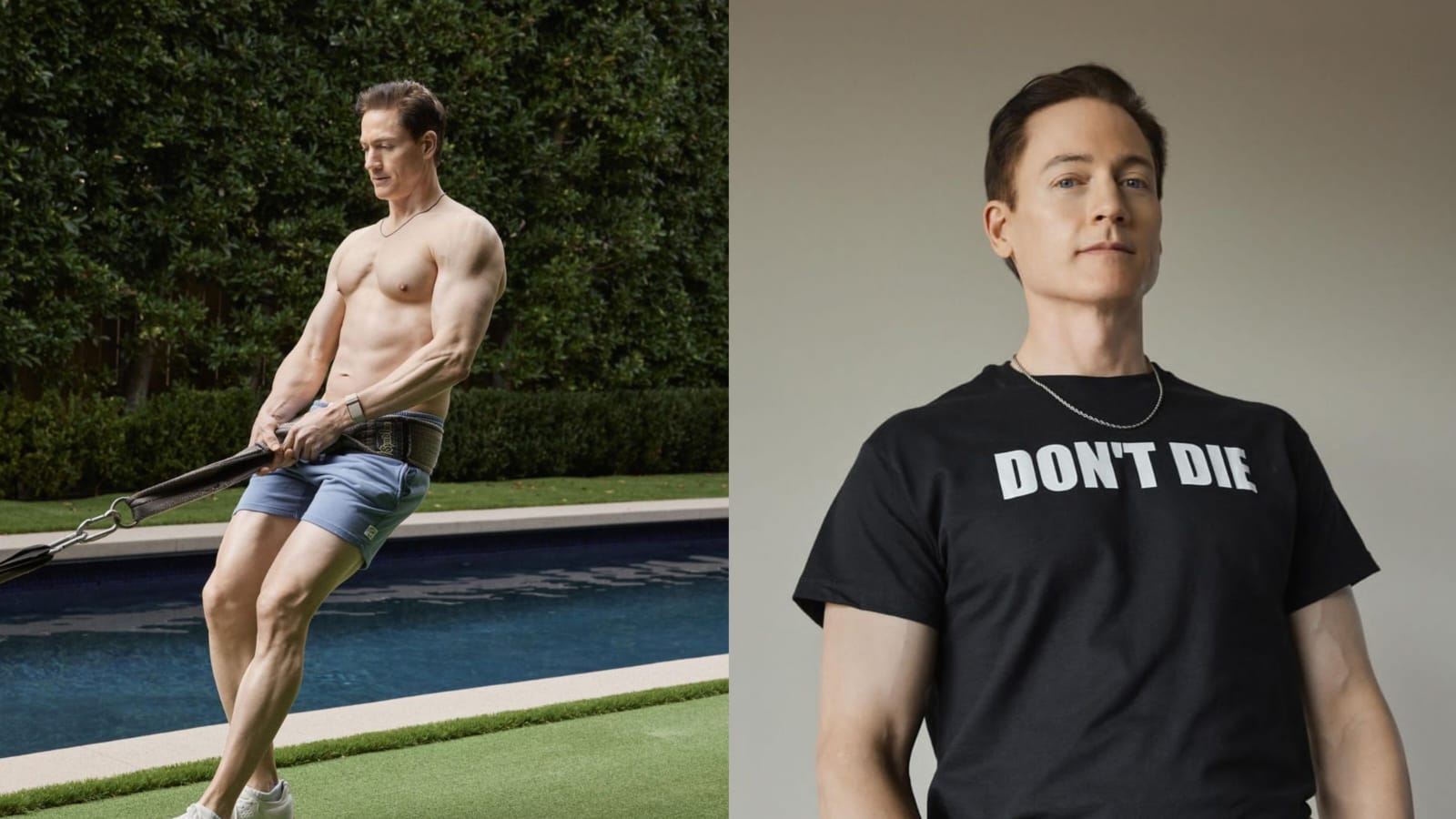Obsessing over increasing human longevity serves little purpose.

According to the global census of the longest-lived people, the maximum human longevity at the moment is between 116 and 117 years . However, there are exceptional cases such as that of Jeanne Calment (1875-1997), who broke the record by turning 122, not far from the second longest-lived person, Kane Tanaka (1903-2022), who blew out 119 candles. The majority of extremely long-lived people are women, while few men reach more than 115 years.
Increasing longevity has been a recurring obsession throughout human history, from the case of Methuselah to the many examples of the long-awaited fountains of youth in literature or the lost paradises dreamed of and depicted in works of art. But achieving it has never been possible.
Today, some bigwigs have placed all their hopes in science and are funding studies to eliminate the symptoms of aging or find a recipe that will make them live longer and more youthful. However, the bone of biology and evolution remains a tough nut to crack.
The size of the brain A recent study has found what its authors believe is a clear link between life expectancy, brain size, and immune system function. The study compares two closely related species, dogs and cats, and concludes that cats live longer than dogs because, for the same size, their brains are larger.

Research has found that cats live longer than dogs because their brains are larger. Photo: iStock
And they haven't stopped there. In total, they've studied 46 species and claim that those with more genes connected to the immune system live longer . For example, while mice live a couple of years, mole rats can reach 20, something they attribute to their genetics.
But is the cause-effect relationship really that clear? Or is it simply a coincidence? It's true that a strong immune system may be associated with greater longevity, but it's also associated with a greater likelihood of suffering from autoimmune diseases. "More" isn't necessarily "better," and we know that very well in biology.
In an attempt to "tweak" our longevity, the ability of certain reptiles and axolotls to regenerate their tails and other limbs has been studied in detail. We have also closely analyzed the ability of tardigrades, microscopic invertebrates known as water bears, to desiccate and revive. But humans cannot regenerate their limbs, nor are we like the Trisolarans in The Three-Body Problem , who could desiccate and rehydrate like the tardigrades. We are the product of an evolution that has endowed us with certain abilities, and millennia of longevity are not among them , no matter how much we might dislike it.
Nor are studies like the one that recently identified what makes the bowhead whale the longest-lived mammal available. Genetic differences with respect to us affect, among other things, DNA repair and even offer protection against certain cancers. But a whale is not a human being, and we cannot extrapolate its characteristics to us.
Despite everything, some believe we'll be able to tweak our genes to increase our longevity. Experiments conducted on simple organisms like yeast, worms, and flies have shown interesting results, but we always wonder if this is feasible for us.
Without going any further, a recent study shows that the inability to synthesize an amino acid, cysteine, reduces the weight of mice and possibly increases their longevity. But can we live without cysteine? No, since this amino acid is essential for many functions, and its deficiency causes very severe symptoms, including neurological diseases.
Supplements If we can't change our biology or our genes, we always have supplements and pharmaceuticals. A recent study suggests that vitamin D, omega-3 fatty acids, and exercise slow the biological clock that leads to aging. We can find hundreds of other articles of this type discussing the benefits of dozens of natural or artificial compounds.

A study suggests that vitamin D, omega-3s, and exercise slow down the biological clock. Photo: iStock
Some people have volunteered to be laboratory rats to test the longevity of pharmacopoeia. This is the case of Bryan Johnson (see attached note). This man's published life is based on a plethora of daily essays and analyses, plenty of physical activity, a frugal meal that ends at 11 a.m. every day, and a room-filling collection of supplements and compounds supposedly linked to longevity. Added to all this are blood transfusions from young people and gene therapies to increase the expression of genes that supposedly improve their physical condition.
But will all this actually extend Bryan Johnson's life? We don't know, not even he can be sure. Of course, even if it's confirmed to work, this whole system is only within the reach of a select few: those who can afford to spend $2 million a year on tests, care, expensive and dubious therapies, and supplements.
The list of the world's longest-lived people tells us there are no magic formulas for greater longevity. If anything has been proven so far, it's that greater longevity is associated with a good quality of life, maintaining a high level of physical and social activity , and the "luck" of being born with versions of our genes that allow us to deal with life's complications as effectively as possible, reducing molecular and cellular damage.
Perhaps some are so obsessed with achieving greater longevity that they forget to live. And the truth is that it's currently much more feasible to add life to years than years to life. Living hundreds of years goes against our biology and evolution. So, for now, it's science fiction.
(*) Professor in the area of Cellular Biology, researcher in metabolism, aging and immune and antioxidant systems at the Pablo de Olavide University.
(**) It is a non-profit organization that seeks to share ideas and academic knowledge with the public. This article is reproduced here under a Creative Commons license.
Who is Bryan Johnson? Bryan Johnson is a 47-year-old tech entrepreneur who has invested his fortune in turning back his biological clock with a series of demanding routines. In the Netflix documentary "Don't Die: The Man Who Wants to Live Forever ," Johnson details his daily life and the loneliness he experiences as a result of a radical decision.
He performs more than 100 daily activities, beginning with waking up at dawn and exposing himself to a special light that simulates sunlight to signal his body to wake up. This is followed by taking his body temperature, stimulating his autonomic nervous system through an electrode placed in his ear, and drinking a green smoothie with 54 supplements. His diet is strict and controlled, with his last meal at 11 a.m. He also undergoes radiation therapy, hair therapy, and other treatments, which he receives in the comfort of his home, where he has set up an office.

Bryan Johnson, the billionaire biohacker Photo: IG: Bryan Johnson
Johnson's intention is to lend his body so that science and technology can minimize a person's biological age. However, some scientists disagree with his methodology, considering it unethical and scientifically unviable.
Johnson has turned his personal project, which he named Blueprint, into another business, becoming a biohacking influencer. He's launched products that promise the results he's seen and has shared information about his process with other billionaires interested in longevity.
In addition to the strict regime under which he lives, Johnson subjects his entire circle, including his clients, to agreements
confidentiality to prevent leaks of your image or your project, controlling an entire narrative.
So far, Johnson has managed to reduce his biological age by five years and his goal is to exceed 120 years, a goal that only Jeanne Calment, a French woman who lived, has achieved.
eltiempo



%3Aformat(jpg)%3Aquality(99)%3Awatermark(f.elconfidencial.com%2Ffile%2Fa73%2Ff85%2Fd17%2Fa73f85d17f0b2300eddff0d114d4ab10.png%2C0%2C275%2C1)%2Ff.elconfidencial.com%2Foriginal%2F45b%2F9ff%2F128%2F45b9ff128dafdf83d7c96fd26d2f6b1d.jpg&w=1280&q=100)
